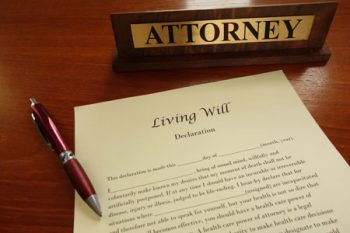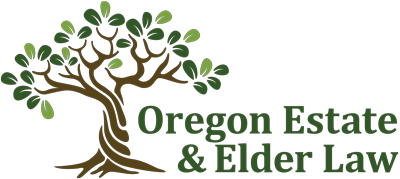Law Firm
 Oregon Estate and Elder Law’s attorneys near Beaverton are passionate about assisting seniors and their families prepare for the devastating costs of long-term health care. When you’re looking for ‘attorneys near me‘ give us a call. We meet with Veterans to discuss and plan for VA benefits, including VA Pension and Aid and Attendance benefits. We also help families protect loved one’s government benefits, including Supplemental Security Income (SSI) and Medicaid benefits, by establishing a Supplemental Needs Trust to ensure the benefits will not be taken away.
Oregon Estate and Elder Law’s attorneys near Beaverton are passionate about assisting seniors and their families prepare for the devastating costs of long-term health care. When you’re looking for ‘attorneys near me‘ give us a call. We meet with Veterans to discuss and plan for VA benefits, including VA Pension and Aid and Attendance benefits. We also help families protect loved one’s government benefits, including Supplemental Security Income (SSI) and Medicaid benefits, by establishing a Supplemental Needs Trust to ensure the benefits will not be taken away.
To learn how Oregon Estate and Elder Law can help your family prepare and plan for long-term health care costs, VA benefits, and Supplemental Needs Trusts, schedule your complimentary appointment with one of our experienced attorneys.
Last Will and Testament
A Last Will and Testament allows you to decide who will manage your property and finalize your affairs after you pass away. A Will allows for your wishes and intentions to be heard regarding a variety of issues, including who your legal representative will be upon your passing, distribution of your assets, and selection of guardians for minor children. Without a Will in place, the administration of your estate is governed by Oregon law. In Oregon, if you do not choose a personal representative in your Will (called an executor or administrator in some states), state law and the court’s choice will decide who your representative will be.
If you do not have a Will and pass away with property requiring a probate or court process to transfer title, your property will be distributed according to Oregon law. For example, if you are married without children, or if you are married and all children are your spouse’s children, then all of your property will pass to your spouse. However, if you are married and have children from a prior relationship, half of your probate property will pass to your spouse, and the other half will be divided equally between your children. If you have minor children, the court will decide who will serve as the Guardian and Conservator for your children. If you are not married, your property will be distributed equally among your children. If you have no children, your property will instead be distributed equally to your parents. Oregon also has provisions that address where assets go if a child or parent predeceased you, and whether that share will pass to that predeceased child or parent’s children. Lastly, if you pass away without any surviving family, your property will be distributed according to the State of Oregon.
Executor of Estate
 When a person dies, they often leave behind property and debts. Every state has a court-supervised process to transfer title of property from a deceased person to their heirs or beneficiaries under a valid will or “Last Will and Testament.” A court will monitor the transfer of a deceased person’s property after the payment of their debts. This court-supervised process is called probate.
When a person dies, they often leave behind property and debts. Every state has a court-supervised process to transfer title of property from a deceased person to their heirs or beneficiaries under a valid will or “Last Will and Testament.” A court will monitor the transfer of a deceased person’s property after the payment of their debts. This court-supervised process is called probate.
In Oregon, the person in charge of handling the estate is called the personal representative. In other states, this legal representative may be referred to as the executor of the estate.
The probate process is necessary to transfer ownership of those assets into the name of their heirs or beneficiaries. If assets are titled in the name of a revocable living trust, with a pay on death or transfer on death beneficiary designation, or owned with another individual with “right of survivorship,” then probate may not be necessary for those assets. Also, assets such as retirement accounts, annuities, and life insurance generally have a beneficiary designation that will bypass the probate process.
When is Probate Needed?
Sometimes probate is needed to:
- Clear title to land, stocks, and bonds, or large bank or savings accounts owned solely by the deceased person, and transfer the title of these assets to the proper beneficiaries.
- Resolve creditor claims when an estate has more debt than assets.
- Collect debts owed to the deceased person.
- Settle a dispute between people who claim they are entitled to assets of the deceased person.
- Resolve any disputes about the validity of the deceased person’s will.
There is also a short-form of probate, called small estate probate. This option is available if the estate is simple with minimal value.
What Happens During the Probate Process?
During the probate process:
- A Petition is filed with the court, either requesting the court admit the will to probate or open an intestate estate (a probate without a will). The will is “proved” and the original copy delivered to the court. The deceased person’s will can be proved by an affidavit made under oath by the witnesses to the will. This is typically already done when the will is originally signed. If such an affidavit is unavailable, the personal presence of the witnesses will be required in probate court to testify that at the time the will was signed, the deceased person was of sound mind and aware of the circumstances.
- A personal representative is selected. A personal representative is appointed by the court to handle the deceased person’s affairs. A will generally names a personal representative who, if willing to serve and otherwise qualified, will be approved by the court. If a person dies without a will, the court will select the personal representative who is typically the surviving spouse, an adult child, or another close relative. Oregon law sets out a preference for who is next in line to serve. If these people are not available or willing to be the personal representative, the court may choose a professional fiduciary.
- A notice to creditors is published in a local newspaper. This public notice to creditors gives creditors a four-month window to present claims against the estate for debts the deceased person owes them. The personal representative also gives written notice to all known and possible creditors.
- The heirs and people named in the will are notified of the probate proceedings.
- Assets are identified, and an inventory is prepared and filed with the court. The personal representative works to identify and value the deceased person’s assets. Depending upon the type of assets and the kind of records left by the deceased person, this step can be quite straightforward – or difficult and time-consuming.
- Debts are determined and eventually paid. The personal representative ensures that valid creditors are paid. Creditors must be repaid from the estate before the remaining estate assets can be distributed to the beneficiaries.
When you need an attorney near Beaverton, Oregon Estate and Elder Law is here to help! Call today to speak with one of our experienced Elder Law attorneys! Our affiliate website, Collier Law, includes more information on settling probate estates in Oregon.
